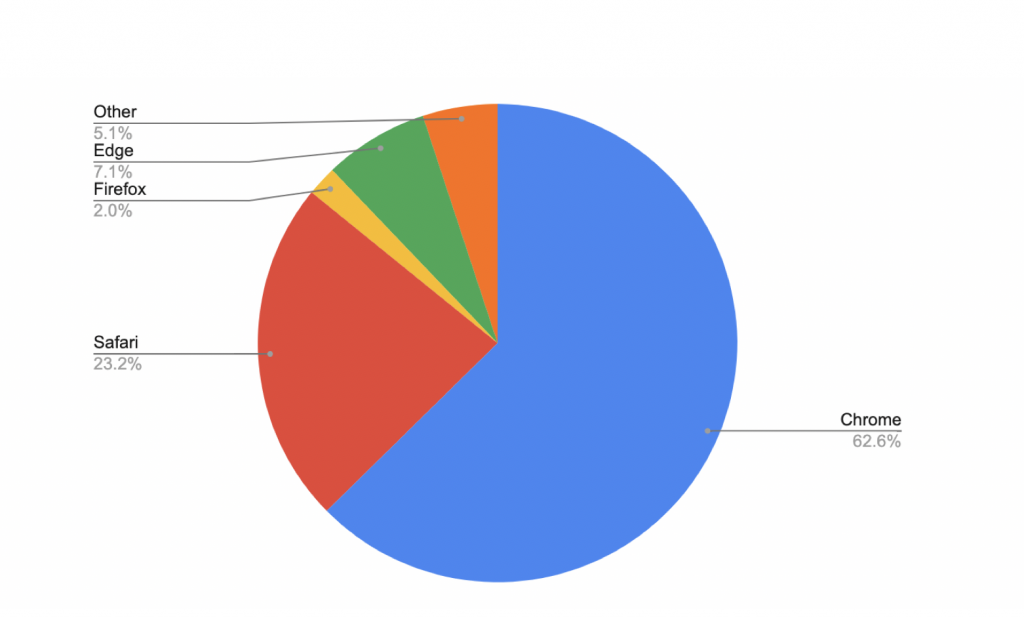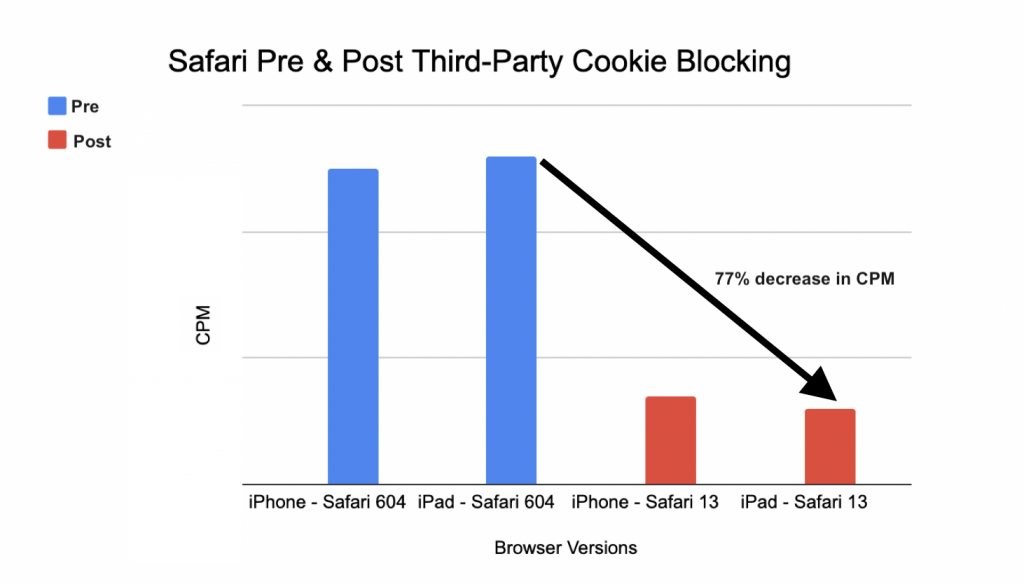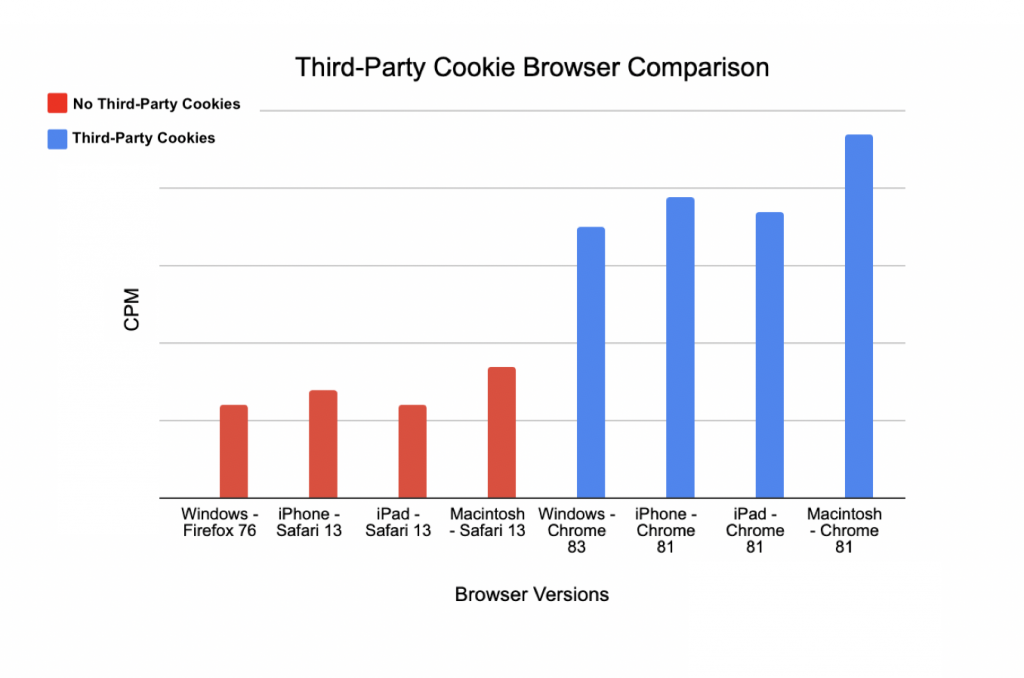
Our proprietary data, tracking publisher ad CPMs on individual devices and browsers, has given us a unique, comprehensive picture as to the precise effects that cookieless browsers have had on rates.
Browser Background Information
Chrome is the world’s most used browser and is still using third-party cookies. However, Google has said that it will end Chrome’s use of third-party cookies entirely by 2022.
In 2017, Apple gradually began increasing cookie restrictions that started with the introduction of Safari’s Intelligent Tracking Prevention (ITP). By March 2020, Apple had blocked all third-party cookies by default for all users with the release of Safari 13.1.
Firefox, beginning in June 2019, enabled their Enhanced Tracking Protection by default for all new users. This feature blocks third-party cookies, making it much harder for advertising and tech companies to track a Firefox user.
Edge, unlike Firefox, does not block third-party cookies by default. There is no tracking protection in Edge’s private-browsing mode either.
2020 Usage by Browser*

Safari browsers
We found that a small percentage of people on iPad are still using the older version of Safari that allows for third-party cookie tracking. This version of Safari had a CPM 3x higher than the CPM for users with Safari 13 that does not allow for third-party cookies on the same device. Similarly, for iPhone Safari users, the pre-third party cookie blocking browsers generated a CPM that was 2.5x higher than the CPM by Safari 13.

Chrome browsers
According to our data, the ad CPM for Chrome users, despite the device type, are significantly greater than those generated on post-third party cookie Safari browsers. We also found that the ad CPM for Mac Chrome users was similar to that of pre-third party cookie blocking Safari browsers. Our data also indicates that:
- The latest version of Windows Chrome browser CPM was 3x that of the Windows Firefox CPM.
- The latest version of iPhone Chrome CPM was 2.8x that of the latest version of iPhone Safari 13 CPM.
- The latest version of iPad Chrome CPM was 3x that of the latest version of iPad Safari CPM.
- The latest version of desktop Mac Chrome CPM was 3.6x that of the latest version of desktop Mac Safari CPM.

Publisher ad revenue is largely affected by the browser choice of their users. For the browsers in which third-party cookie tracking is enabled, such as the older version of Safari and current versions of Chrome, CPMs are significantly higher than all browsers that have disabled third-party cookie usage. We estimate that if Google blocks third-party cookies by default in Chrome as expected in 2022, this could result in revenue declines of up to 40% unless publishers implement measures to mitigate this loss.
Check out what Publir’s doing to prepare for the deprecation of Chrome’s third-party cookies here.
